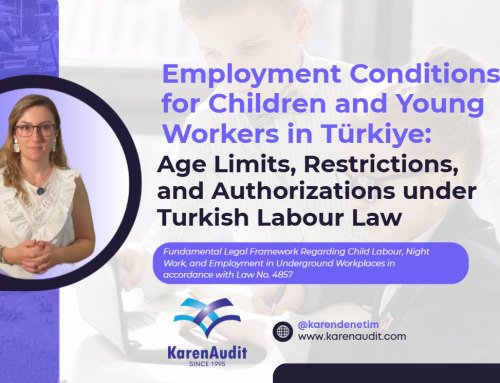2023 marked a period when inflation adjustment became mandatory once again in Türkiye. However, many are uncertain whether this requirement applies to income tax taxpayers who ceased their operations at the year-end. The Istanbul Tax Office’s ruling dated April 24, 2024, brings important clarity to this matter. 🏢
What is Inflation Adjustment? 💡
According to Article 298 of the Tax Procedure Law, taxpayers who determine their earnings based on balance sheets must adjust their financial statements for inflation when certain inflation rates occur. Specifically for 2023, all taxpayers’ balance sheets dated 31.12.2023 will be subject to adjustment, regardless of whether inflation conditions are met.
However, there are exceptions to this rule! ⚠️
What Should Taxpayers Who Ceased Operations Do? 🤔
The Tax Procedure Law’s Article 161 defines cessation of business as “complete termination of taxable activities.” Those who terminated their activities as of December 31, 2023 (i.e., whose tax liability ended at the end of 2023) are not required to make inflation adjustments since they no longer have any commercial activity at year-end.
Key Points from Tax Regulation No. 555 📝
• No adjustment is required for those who ceased operations in their 31.12.2023 balance sheets
• If tax liability ended within 2023, no year-end balance sheet adjustment is necessary
• However, if liquidation process completed in 2024, the 2023 year-end balance sheet may be subject to adjustment
Conclusion ✍️
Income tax taxpayers whose tax liability ended on December 31, 2023, will not make inflation adjustments for that year. This is because the adjustment process is intended to update values carried forward to the following period, which doesn’t apply to those who have ceased operations.
Therefore, businesses that ceased operations in 2023 are not required to make inflation adjustments to their 31.12.2023 balance sheets. 📈
Important Note: Always consult with a qualified tax advisor for your specific situation! 👨💼
Legal Notice: The information in this article is intended for information purposes only. It is not intended for professional information purposes specific to a person or an institution. Every institution has different requirements because of its own circumstances even though they bear a resemblance to each other. Consequently, it is your interest to consult on an expert before taking a decision based on information stated in this article and putting into practice. Neither Karen Audit nor related person or institutions are not responsible for any damages or losses that might occur in consequence of the use of the information in this article by private or formal, real or legal person and institutions.






